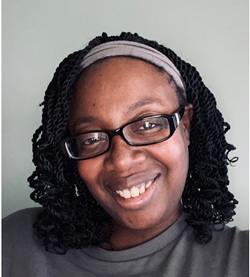IBMS Council profile - Nicky Rouse

Our Council members represent the diverse expertise, commitment and values that define the biomedical science profession. Each profile in this series highlights a member’s journey, professional experience and the perspectives they bring to shaping the IBMS’s strategic direction.
In this edition, we speak with Nicola (Nicky) Rouse FIBMS CSci FHEA, a lecturer and former senior biomedical scientist in haematology and transfusion, whose career reflects a deep commitment to education, inclusion and advancing patient-centred care.
1. What first inspired you to pursue a career in biomedical science?
I was always very interested in medicine and how the body worked as a teen and wanted to follow a career where I could put my love of science to good use making a difference. Spurred on by a brilliant biology teacher (shout out to Mr Marples) who nurtured my curiosity, this culminated in a work experience position at my local hospital, shadowing doctors.
I was a bit shocked that none of them recommended their profession and, ultimately, I discovered that I didn’t really have the patience for patients, but I knew I wanted to do something medicine adjacent that helped people – enter biomedical science!
2. Can you briefly describe your current role and area of expertise?
I’m an HCPC Registered Biomedical Scientist specialising in haematology and transfusion. After over 20 years working in and with NHS pathology labs, I now work full time in academia. However, with over a decade of experience of training Biomedical Scientists at every stage of their career my raison d’être remains making Biomedical Scientists that support the best possible patient care. For me academia represents an opportunity to do this at scale.
My day-to-day involves designing content to support distance learners. I’m passionate about supporting inclusivity and removing barriers to our profession so that our workforce can reflect the diversity of the communities it serves. As part of my role as a central academic at The Open University, I also conduct research exploring pedagogical approaches to the formation of professional identity for Biomedical Scientists, including simulation-based learning. I also have a special interest in authentic assessment.
3. Why did you decide to seek election to IBMS Council?
The main appeal of Council was the opportunity to be part of shaping the strategic direction of the profession. I’m an active committee member of our local IBMS Notts and Derby Branch and wanted to be able for build connections between the IBMS’s local and national activity, helping to making sure that our professional body continues to meet the needs of everyday biomedical scientists at the bench.
I was also inspired by the work the IBMS has been doing to ensure our collective voices are heard by the highest levels of government, to support the development of a sustainable workforce for the future, so that invaluable impact on patient care can continue for years to come.
4. What do you see as the most important role of Council in supporting the profession?
I think Council supports our profession in several ways, but possibly the most important is in bringing biomedical scientists together. We work in positions often hidden from view and in roles that are often poorly understood by the general public. I think Council facilitates a host of resources and events that say loudly, you are seen, you are valued, and you are heard.
5. What achievements or contributions from your time on Council are you most proud of?
I’ve been incredibly proud to support my local branch to host events that showcase the successes and contributions of Biomedical Scientists in our region. It was amazing to be able to recognise members with 50 years of service at our AGM this year!
I’ve also been incredibly proud to support events like the recent IBMS Congress showcasing the very best of our profession and the collective impact we have.
The opportunity to feed into the wider national discourse and debate around all things biomedical science has also been amazing, resulting in publications such as the IBMS Long Term Biomedical Scientist Workforce Plan.
6. How does being a Council member enrich your professional life?
As an academic, being a Council member alongside my roles as an IBMS Registration Training Portfolio verifier and Specialist Portfolio examiner helps to keep me connected and current. It facilitates horizon scanning, keeping me abreast of the strategic direction of biomedical science in the UK, so that the courses I contribute towards continue to represent best practice in the profession.
7. What message would you give to members who may consider standing for Council in future?
Being an IBMS Council member is a commitment that is not to be taken on lightly, but it means being able to make a meaningful and rewarding contribution to a profession I am passionate about. It’s an opportunity to take my experience and impact as a biomedical scientist to the next level.
